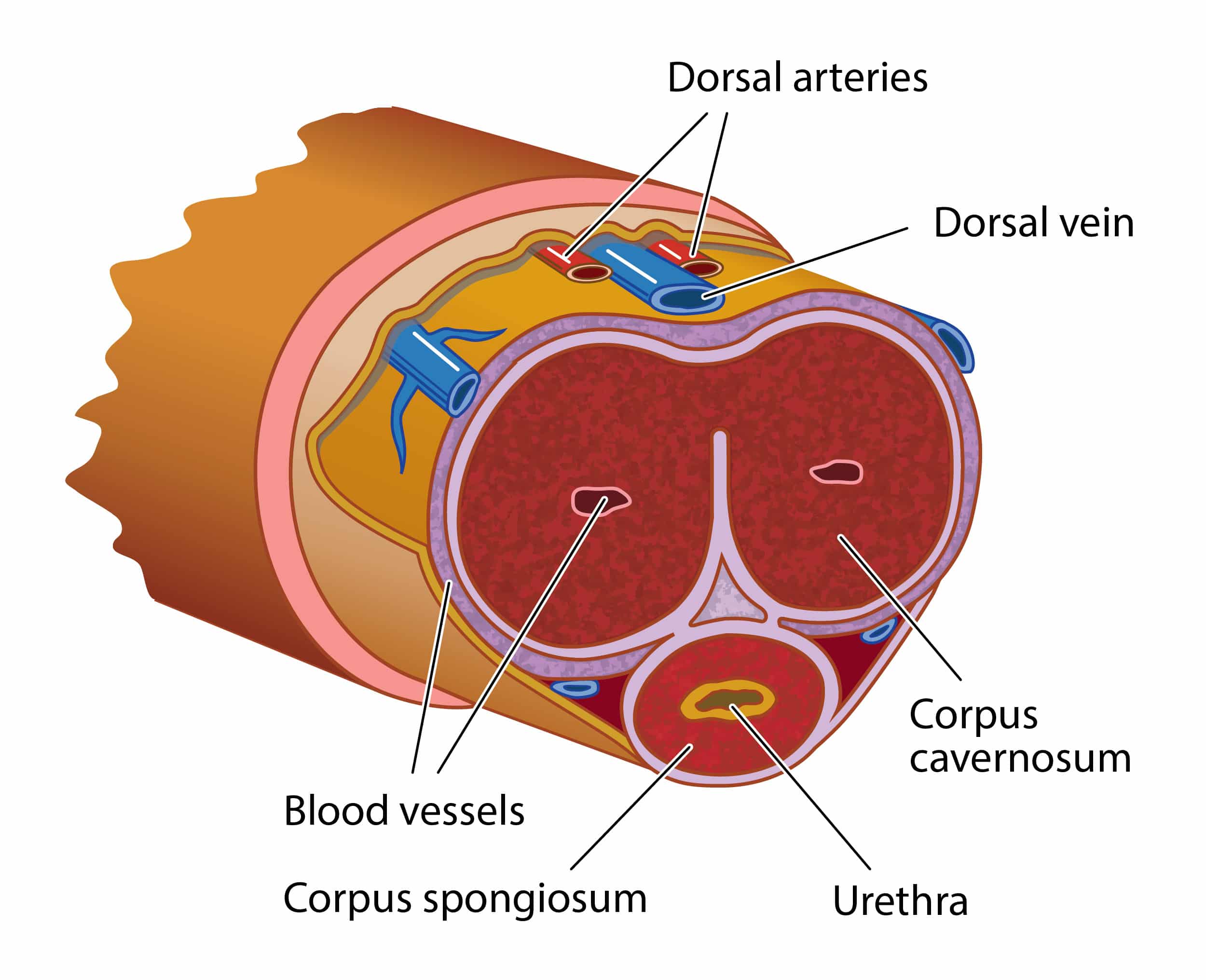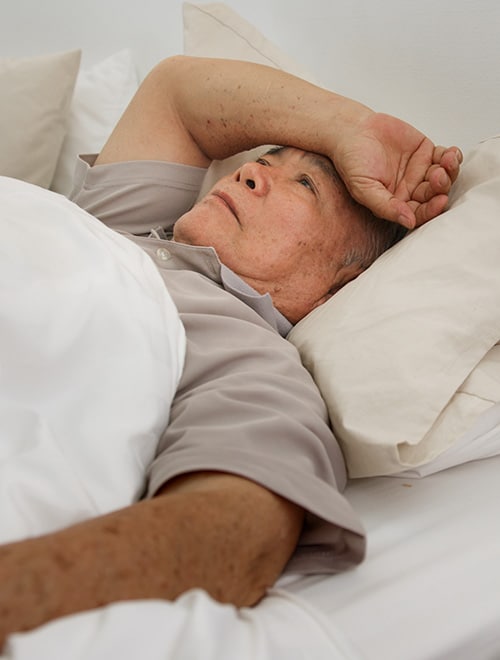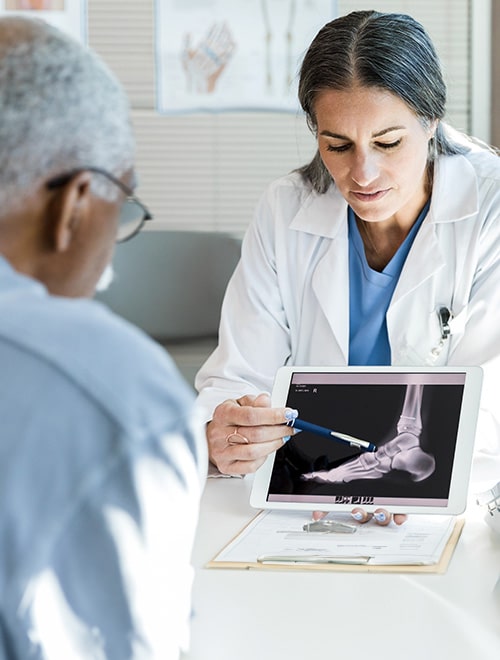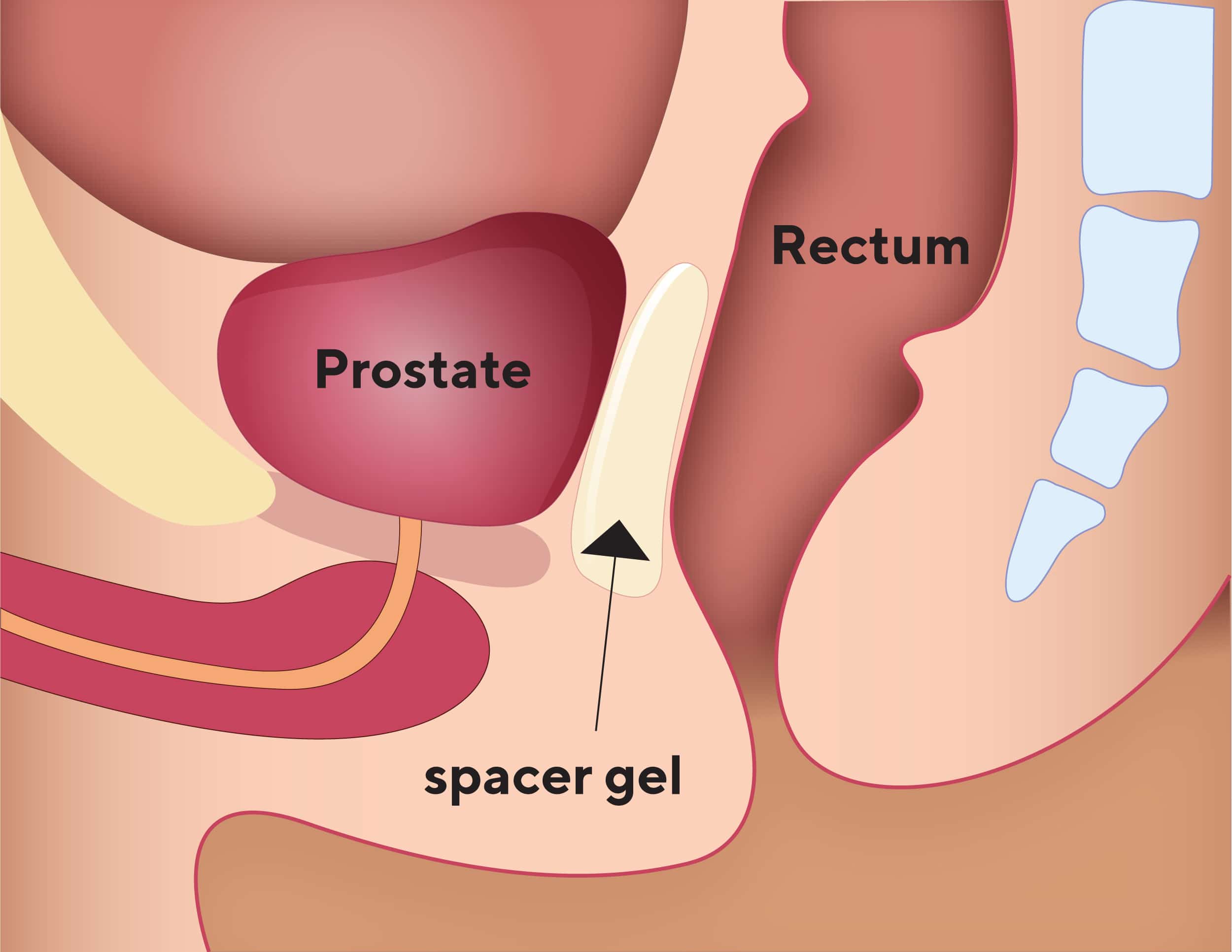- 7 min read
Prostate cancer treatment and your sexual function
Prostate cancer treatments can cause orgasm and ejaculation changes and can affect your ability to get or maintain an erection (erectile function). The effect a treatment has on your sexual function can depend on:
- Your age
- Your sexual function before treatment
- If you have any medical conditions, such as diabetes, cardiovascular disease or high blood pressure
- Certain lifestyle factors, such as smoking, excessive alcohol, obesity or limited exercise
- If you have any psychological or emotional issues, such as stress, anxiety, depression and/or relationship problems
- What type of prostate cancer you have
- The type of treatment you receive
Follow the links below to see an overview of the side effects that you may experience with or after each specific treatment.
- Surgery side effects
- Radiation therapy side effects
- Hormone therapy side effects
- Chemotherapy side effects
- Focal therapy side effects
- Theranostic side effects
Discussing your sexual function and any challenges with your doctor or health care team might seem difficult, but it’s important to get all the facts before treatment. This will help you understand any symptoms you experience and can guide your healthcare team on providing support for your side effects before or early in your treatment.
The aim of this section of your toolkit is to help you understand the possible side effects of prostate cancer treatment on your sexual function and how to manage them.
What sexual function symptoms can you experience with prostate cancer treatment?
The sexual function challenges and changes you may experience during or after treatment include:
What is erectile dysfunction?
Your ability to get and maintain an erection is called erectile function. When you are sexually aroused, the brain sends messages down the spinal cord and through nerves located near your prostate.
These nerve messages tell your blood vessels to allow more blood into two spongy cylinders (called the corpus cavernosa) within your penis. As these cylinders expand and fill with blood an erection occurs. The diagram below shows the blood vessels in the middle and surrounding each of the corpus cavernosum within your penis.

Cross section of a penis
Erectile dysfunction is when you can’t get or maintain an erection firm enough for sexual activity. It can be caused by a number of reasons including changes to the nerves or blood vessels supplying your penis.
How can prostate cancer treatments cause erectile dysfunction?
Problems with erections are most likely to occur after surgery or radiation therapy, but Hormone therapy (also called androgen deprivation therapy or ADT) and focal therapy can also cause erection problems.
Surgery and erectile dysfunction
It’s common to lose your ability to have an erection after surgery, at least initially. This can happen immediately after surgery and can take 18 to 24 months for erections to improve.
Erectile function after surgery will depend on:
- Whether the nerves that control erections were spared during surgery
- How your erections functioned before surgery
- Other health conditions you may have
- Medications you may be on
Follow the links to learn more about surgery for prostate cancer and learn about nerve sparing surgery.
Radiation therapy and erectile dysfunction
Unlike surgery, radiation therapy doesn’t usually have immediate effects on your erections. Instead, problems with erections may develop around 6 to 18 months after treatment and can get worse over the following years.
Hormone therapy and erectile dysfunction
Testosterone is a hormone (also called an androgen) that is needed for sexual desire and male reproduction. Levels can decrease as you age or because of illness or treatment.
Hormone therapy reduces the levels of testosterone in your body, which may reduce your libido and affect your ability to get and maintain an erection.
Follow the links to find out how hormone therapy works and the roles of testosterone in the body.
How do you manage erectile dysfunction?
Approximately 1 in every 3 men over the age of 40 experiences some degree of erectile dysfunction, with problems increasing with age. These problems can get worse after treatment for prostate cancer.
Treatments for prostate cancer can affect your ability to get and maintain an erection, particularly if you had problems with erections before surgery.
It can be helpful to talk to your doctor, healthcare team or a PCFA nurse about how to manage erectile problems during or after treatment. Ask them how the following things might help you:
- Lifestyle changes
- Being physically healthy can be the first step to achieving erections
- Eating well
- Following dietary advice to manage conditions like high cholesterol and type 2 diabetes which can affect erections
Follow the links to learn more about:
- Focus on maintaining or rebuilding intimacy with your partner
- Rehabilitation options
- Tablet medications before or after treatment
- Penile injection medications
- Vacuum erection devices
- Surgical implants/prostheses
Learn more about the rehabilitation options by following the link to Pre & Rehabilitation
How can prostate cancer treatments cause low sex drive?
Hormone therapy reduces testosterone levels in your body and may reduce your libido (sex drive). Other factors that may affect your libido include tiredness, stress, family issues, other treatment side effects and how you feel about body changes from treatment.
Follow the links to find out how hormone therapy works and the roles of testosterone in the body.
How can prostate cancer treatment affect orgasms?
If you are having bothersome or worrying symptoms at orgasm, talk to your doctor, a member of your healthcare team or a PCFA nurse.
Radiation therapy and surgery can affect your orgasms. Depending on the treatment, symptoms can include:
- Dry orgasms
- Leaking urine at orgasm (also called climacturia)
- Painful orgasms
What are dry orgasms?
A dry orgasm is when you don’t produce or ejaculate semen when you orgasm, although you may still feel the sensations of orgasm. Your experience with dry orgasms may be different to others. Some men describe a more intense orgasm, while others feel that orgasms are less intense and pleasurable.
Dry orgasms occur after prostate cancer surgery when the prostate and seminal vesicles have been removed. Seminal vesicles produce 80-90% of the ejaculate volume (the fluid in your semen) and are removed with the prostate to give the best chance of curing your cancer.
Radiation therapy can also affect ejaculation. Over time the volume of semen may decrease and eventually you may produce no semen at orgasm. However, you may also experience minimal or no change to your ejaculation.
What treatment can cause urine to leak at orgasm?
Prostate cancer surgery may cause urine leakage when you orgasm. This is called climacturia. Emptying your bladder before sex may help reduce the chances of this happening.
What treatments can cause painful orgasms?
Surgery or radiation therapy may cause you to experience pain at orgasm. This usually settles after a few orgasms.
What ejaculation changes can be caused by prostate cancer treatments?
Depending on the treatment, radiation therapy and surgery can cause ejaculation symptoms, including:
- Retrograde ejaculation
- Discoloured semen
What is retrograde ejaculation?
Retrograde ejaculation is when your semen goes into the bladder during ejaculation instead of coming out of your penis. The semen is then passed out with your urine the next time you go to the toilet. It can give your urine a cloudy appearance, but this is harmless.
You may experience this side effect from some medicines or if you have had a surgical procedure called transurethral resection of the prostate (TURP). Learn more about this procedure by following the links to:
What treatments cause discoloured semen?
If you have had brachytherapy (a type of radiation therapy treatment that involves implanting radioactive material into your prostate), your semen may be discoloured or blood-stained for the first few weeks after the procedure. This is due to bruising or bleeding from the prostate caused by the treatment.
It can also happen if you are having external beam radiotherapy and having fiducial marker seeds inserted. This usually clears up on its own with time.
Having a prostate biopsy may also cause bleeding and discoloration of your semen. This usually clears up after a few ejaculations.
If there is blood in your semen and you have not had any treatment for prostate cancer or if you have had treatment and the bleeding gets worse or lasts more than a few days, it is important that you talk to your doctor, healthcare team or a PCFA nurse.
What treatment can cause changes in penis length?
Surgery to remove your prostate may cause a small reduction in penis length. On average the penis can be about 1 centimetre shorter while erect and/or flaccid (soft). This may be due to scar tissue and/or poor functioning of the nerves or blood supply to your penis.
Penile rehabilitation can help by bringing more blood and oxygen to the tissues that help you get and maintain erections to keep them healthy.
Talk to your doctor about a penile rehabilitation plan. Your doctor can also refer you to a psychologist or sex therapist/counsellor to help you manage your feelings about changes to the appearance of your penis. You can also reach out to a PCFA nurse for advice or for more information on the Prostate Cancer Counselling Service.
What prostate cancer treatments can affect fertility?
Hormone therapy, surgery, chemotherapy and theranostics can cause fertility issues. If having children in the future is important to you, ask your healthcare team to refer you to a service that provides fertility-preserving options, such as sperm banking, before you start treatment. That way, fathering a child in the future may be possible using your stored sperm.
Managing side effects and looking after yourself
The side effects of treatment on your sexual function can be a challenge in a variety of ways. You may feel that your masculinity, self-identity and sense of sexuality change if you lose your erections and sexual desire. There may also be a change in experience of anal sex after prostate cancer surgery.
The links and information below can help you can look after yourself and seek the support you need:
Talk to your doctor or a member of your healthcare team for advice or for a referral to a psychologist or sex therapist/counsellor. You may also find it helpful to talk to others who have experienced side effects from prostate cancer treatments by looking into support groups.
For specific rehabilitation therapies before and after treatment follow the link to Pre- & Rehabilitation.
You can also find out how to be healthier with diet, lifestyle and exercise through the following links:
Remember, you can always talk to a PCFA nurse on 1800 22 00 99 if you have any questions or concerns or would like to be referred to our Prostate Cancer Counselling Service.
Key Points
- Prostate cancer treatments, such as surgery, radiation therapy and hormone therapy can cause sexual function side effects
- Having these side effects can depend on many factors, including your age, lifestyle, health before treatment, prostate cancer type and which treatment you have
- Side effects can include changes to your ability to have erections and have an effect on ejaculation, orgasm, sex drive and penis length
- Some of the side effects may be temporary and some may be longer lasting or permament
- Diet and lifestyle changes, medications, surgery or rehabilitation options may help with regaining sexual function
- Changes in your sexual function may also have an impact on emotions. Ask your doctor, healthcare team or a PCFA nurse for information, advice or referral to a psychologist, sex therapist or counsellor






